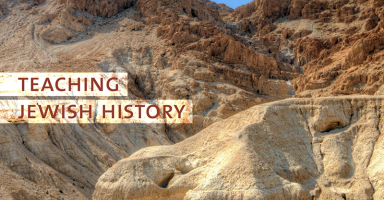Teaching Jewish History
About This Issue

Is Jewish history the linchpin to Jewish identity formation, the weak link in day school Jewish studies, or perhaps both? Jewish history provides students with critical links to their past and gives them the context for their own experiences. Discover insights in this field from senior scholars and educators, and find creative new initiatives being used by teachers in day schools today.
Click here to download the PDF and printer friendly version of this issue of HaYidion
Articles From This Issue
Image

AI and Tech
Fall 2023
Image

Relationships
Spring 2023
Image

Affordability
Fall 2022
Image

Value Proposition
Spring 2022
Image

Organizational Memory
Fall 2021


